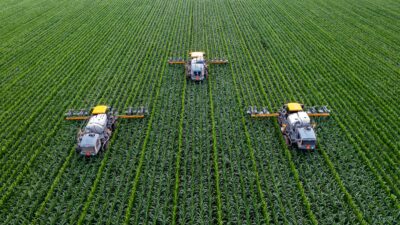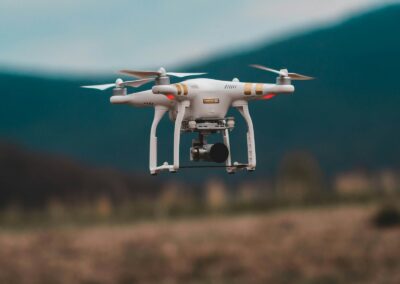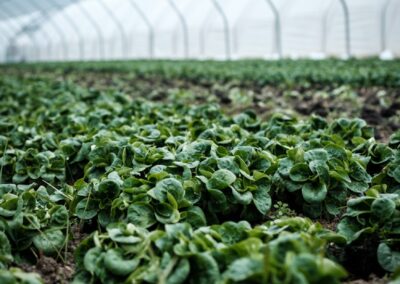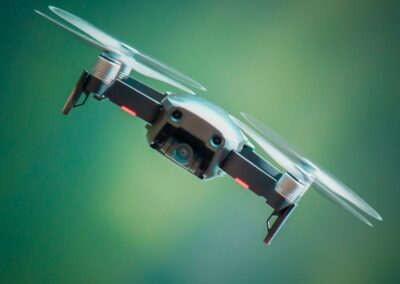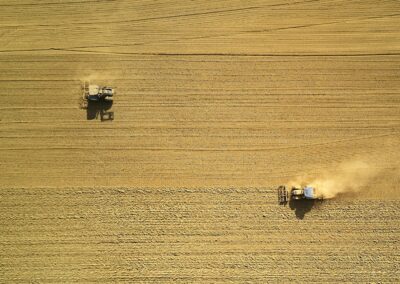Revolutionizing Precision Farming through Digital Twins
The Impact of Digital Twins in Smart Agriculture
Digital twins in smart agriculture are set to revolutionize the way we approach farming, offering unprecedented insights and efficiencies. This cutting-edge technology involves creating a digital replica of physical agricultural systems, enabling real-time monitoring, analysis, and optimization of farming practices. As the global population continues to grow and the demand for food increases, leveraging digital twins can lead to more sustainable and productive agricultural practices.
Digital twins offer several benefits to the agricultural sector, including enhanced crop management, efficient resource utilization, and improved decision-making. By collecting and analyzing data from various sources such as soil sensors, weather stations, and satellite imagery, digital twins provide a comprehensive view of farm operations. This holistic approach allows farmers to optimize planting schedules, irrigation, fertilization, and pest control, leading to higher yields and reduced environmental impact.
In regions like Saudi Arabia and the UAE, where agriculture faces unique challenges due to arid climates and limited water resources, digital twins can play a crucial role. By integrating modern technology with traditional farming practices, these countries can enhance their agricultural productivity and sustainability. Cities such as Riyadh and Dubai are investing in smart agriculture initiatives, demonstrating the potential of digital twins to transform the industry.
Enhancing Precision Farming with Digital Twins
The integration of digital twins in smart agriculture significantly enhances precision farming by providing detailed insights into every aspect of crop production. Precision farming involves using technology to monitor and manage variability in fields, ensuring that crops receive the right amount of water, nutrients, and protection at the right time. Digital twins enable farmers to achieve this level of precision by offering real-time data and predictive analytics.
For instance, digital twins can simulate various farming scenarios, helping farmers understand the impact of different variables on crop growth. This capability allows for better planning and risk management, as farmers can anticipate potential issues and make informed decisions to mitigate them. Additionally, digital twins can track the health and development of crops, alerting farmers to any signs of disease or stress, enabling timely interventions.
In the context of smart agriculture in Saudi Arabia and the UAE, digital twins can help address the challenges of water scarcity and harsh climatic conditions. By optimizing irrigation and resource management, digital twins can ensure that water is used efficiently, reducing waste and promoting sustainability. This technology aligns with the broader goals of these regions to enhance food security and promote sustainable development.
Strategic Implementation for Agricultural Success
Successfully implementing digital twins in smart agriculture requires a strategic approach that combines technology with agricultural expertise. This includes selecting the appropriate digital twin platforms, integrating them with existing farm management systems, and training farmers and agricultural professionals to use the technology effectively.
Executive coaching and leadership development are essential components of this process. Leaders in the agricultural sector must champion the adoption of digital twins, drive innovation, and foster a culture of data-driven decision-making. By investing in leadership development, agricultural businesses can ensure that their teams are well-equipped to leverage digital twins for maximum impact.
In regions like Riyadh and Dubai, where there is a strong focus on modernization and technological advancement, the strategic implementation of digital twins can significantly contribute to agricultural success. By aligning technological innovations with leadership and strategic vision, these cities can set new standards for smart agriculture and enhance their agricultural productivity and sustainability.
Conclusion
In conclusion, digital twins in smart agriculture offer transformative benefits for the agricultural sector, enhancing precision farming and sustainability. By providing real-time data and predictive analytics, digital twins enable more effective planning, resource management, and decision-making. As regions like Saudi Arabia and the UAE continue to embrace modern technology, the integration of digital twins will play a pivotal role in creating sustainable and productive agricultural practices. Through strategic implementation and strong leadership, agricultural businesses can harness the full potential of digital twins to achieve greater efficiency, sustainability, and success.
—
#DigitalTwins #SmartAgriculture #PrecisionFarming #ModernTechnology #AIinAgriculture #Blockchain #SaudiArabia #UAE #Leadership #BusinessSuccess #ProjectManagement



